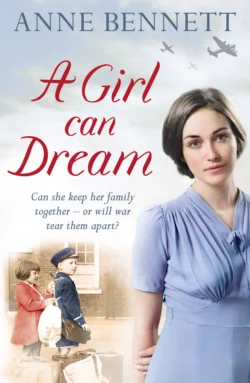A Girl Can Dream

Anne Bennett
Тип: электронная книга
Жанр: Современная зарубежная литература
Язык: на английском языке
Стоимость: 699.98 ₽
Статус: В продаже
Издательство: HarperCollins
Дата публикации: 16.04.2024
Отзывы: Пока нет Добавить отзыв
О книге: A dramatic and emotional story of one woman’s story to keep her family together. For fans of Dilly Court and Kitty Neale.When Meg’s mother dies in childbirth, she is determined to keep the promise made on her mother’s deathbed – keep the family together. But her father has descended into drink and resents the baby, Ruth, who he believes cost him his wife.Though struggling financially, Meg resists the offer of help from their unscrupulous and sinister landlord, Richard Flatterly. Things get worse when her father returns home one night with a woman called Doris and announces he intends to marry her. When war breaks out three of the children are evacuated to the country while little Ruth must stay with Meg’s father and his new wife as she is too young.Meg and her friend Joy sign up for the Land Army and go to work on the farm where she meets Stephen, home on leave after fighting the Nazi’s – the attraction is instant and she and Stephen fall in love. But when she returns to the family home for a visit, she is horrified to discover the house in squalor and that worst of all, Little Ruth has been sent to an orphanage. With no options, Meg must turn to the only man who can help her, Richard Flatterly, but in return for his help, she must pay a very high price…